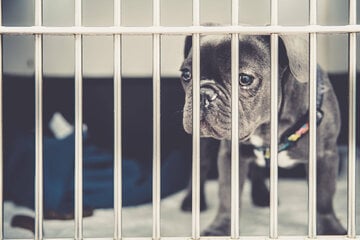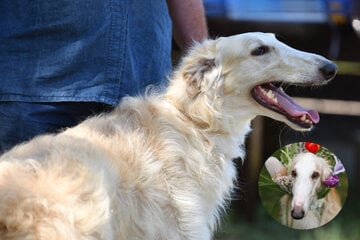Can dogs eat raw meat? What raw meat can dogs eat?
Many people will assume that, since dogs eat meat, it's okay to throw them a hunk of raw meat every now and again. Is that actually OK, though? Can dogs eat raw meat? And if so, what meat is okay?
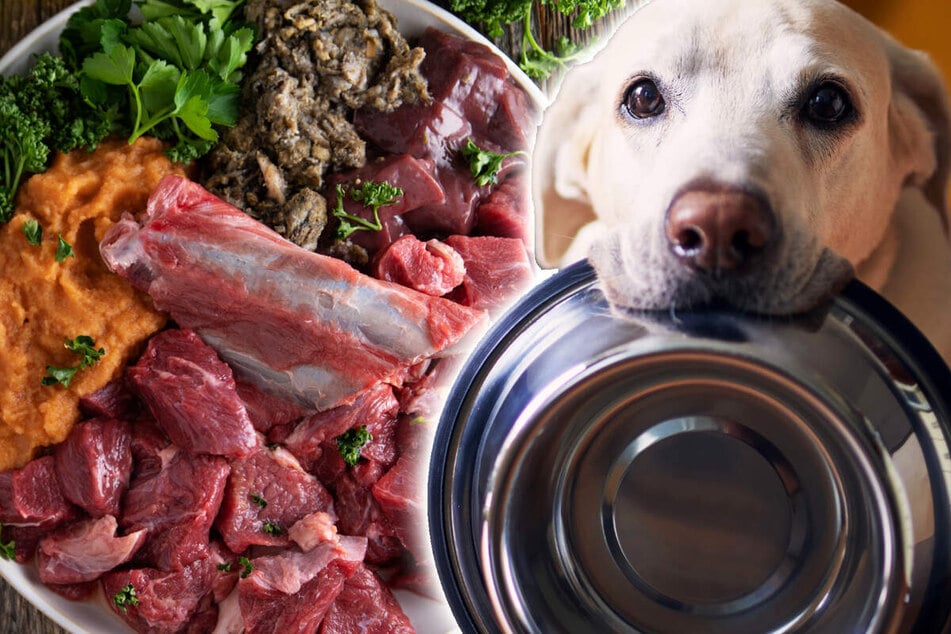
There's a term that has become popular amongst certain members of the dog-loving community.
"Biologically Appropriate Raw Food" or "Bones and Raw Food" – appropriately shortened to BARF – is the belief that dogs should consume as close to their natural diet as possible. The problem, though, is that many seem to believe that a domestic dog's diet is the same as that of their ancestors: wolves.
But that's not a given, as TAG24's dog guide explains.
Take a deep dive with us and find out whether it is true that dogs should eat predominantly raw meat or, indeed, whether dogs can eat raw meat at all.
Are there some raw meats that are good, and some that are bad? We'll answer all your questions!
Can dogs eat raw meat?
More than ten millennia have passed since dogs first emerged as a variant on the wolf and, while this is not a huge amount of time from an evolutionary perspective, it is certainly enough to make a difference. On top of that, humans have systematically bred different dog breeds for many, many years, genetically altering them and creating animals that are by no means "natural".
As such, to assume that a dog should consume a "natural" diet simply ignores the fact that – at the risk of sounding a little rude to our four-legged friends – there is nothing "natural" about the domestic dog (or domestic cat for that matter, let's not discriminate). We can deduce from this that dogs are not necessarily the carnivores we all thought they are.
I can hear all of you dog experts out there calling out "Domestic dogs are omnivores, not carnivores!" and, hey, you'd be completely right. Dogs eat both meat-based food and alternative foods made out of plant matter. Indeed, former house dogs that have gone stray won't actively hunt, but usually consume scavenged food material from human rubbish bins.
This brings us to the question at hand: yes, dogs can eat raw meat, but they shouldn't eat it all the time and it isn't the best idea. Raw meat is not a necessary part of a domestic dog's diet, the BARF community is mistaken in thinking that going back to a dog's "roots" is necessary, and raw meat hides many potentially dangerous diseases.
Can all dogs eat raw meat?
All dog breeds can eat raw meat if necessary, but it is always a risk. Raw meat contains many multiresistant bacteria, some of which won't respond to antibiotics, as well as viruses and other potentially harmful substances. There's a reason why humans can only eat certain raw meats, and the same goes for dogs.
Interestingly, a 2020 study made by the European Society for Clinical Microbiology and Infectious Diseases found that 100% of raw meat contains some of this multiresistant bacteria. As such, it is always a risk to eat raw meat, even if it is of an extremely high quality.
Another big difference between domestic doggos and wild wolves is their digestion of carbohydrates. A 2013 paper confirmed that dogs have higher enzyme activity and better glucose uptake than wolves, making them far better at using starch as a food source and converting carbohydrates into energy. The lesson? All dogs can eat raw meat, but they generally shouldn't.
Why can dogs eat raw meat?
While we have been pushing against the giving of raw meat to dogs, we're not saying that you should be slapping a steak on the grill for them. Domestic canines are designed to process and digest meat in its raw form, not cooked. As a result, most dog foods are neither raw nor cooked, but treated to eliminate the risks associated with raw meat (and to guarantee that it is highly nutritious).
There's a reason why dog food (and cat food as well) looks so weird and smells so disgusting. It has been treated in various ways to guarantee that the animal receives as nutritious a feed as possible, as safely as possible. The moral of the story is that pets, in general, should be fed food designed for them, not off the dinner table.
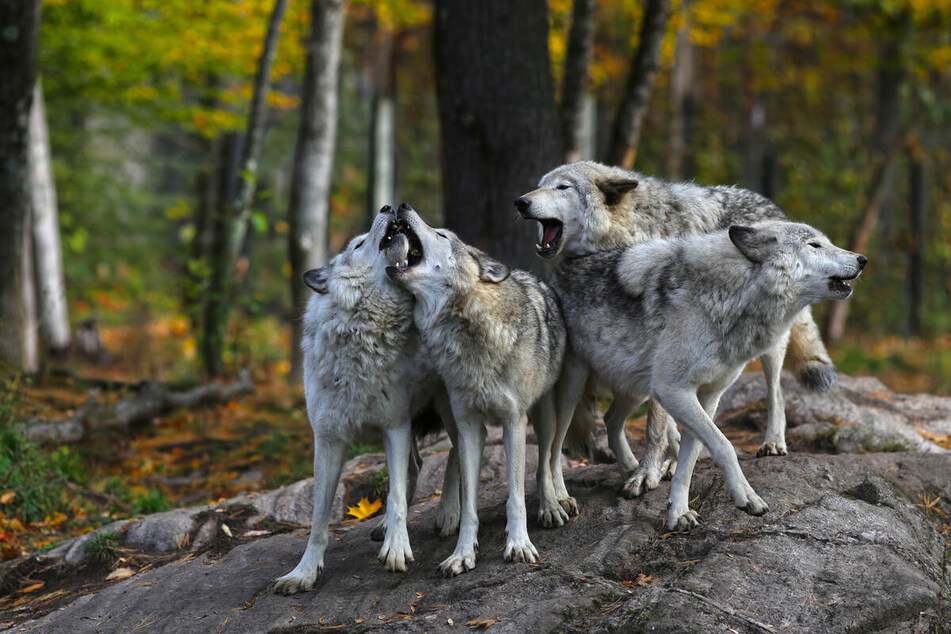
What raw meat can dogs eat?
We might not recommend feeding your dog raw meat, but that doesn't mean that they can't have a little treat every now and again. They adore a good piece of beef, or a little sliver of organ meat, and it's nice for them to get a little something on a special occasion. There are a few rules that you should follow, however.
You can feed your dog these raw meats:
- Chicken
- Turkey
- Beef
- Lamb
- Organs (heart, liver)
- Fish
- Bigger bones from large animals
The most important rule of them all: It is vital that you give dogs nothing which contains small bones that can splinter and hurt them. As such, no boned chicken or turkey (so no wings, drumsticks, etc.), only completely deboned fish, and only large bones from animals like cows and sheep.
How should you cook meat for dogs?
BARF feeding has been widely panned by the veterinarian medical establishment, with the American College of Veterinary Nutrition recommending against the practice. Ultimately, you should always feed your dog vet-approved dog food, preferably a balanced combination of wet and dry.
If you insist upon feeding your dog genuine meat, choose one of the above options and cook it very simply. The best way to go about cooking for your dog is to boil the meat, with no salt or seasoning, in a pot of water. You should not fry it in oil, or add anything extra – just pure, boiled meat.
Health concerns of raw meat for dogs
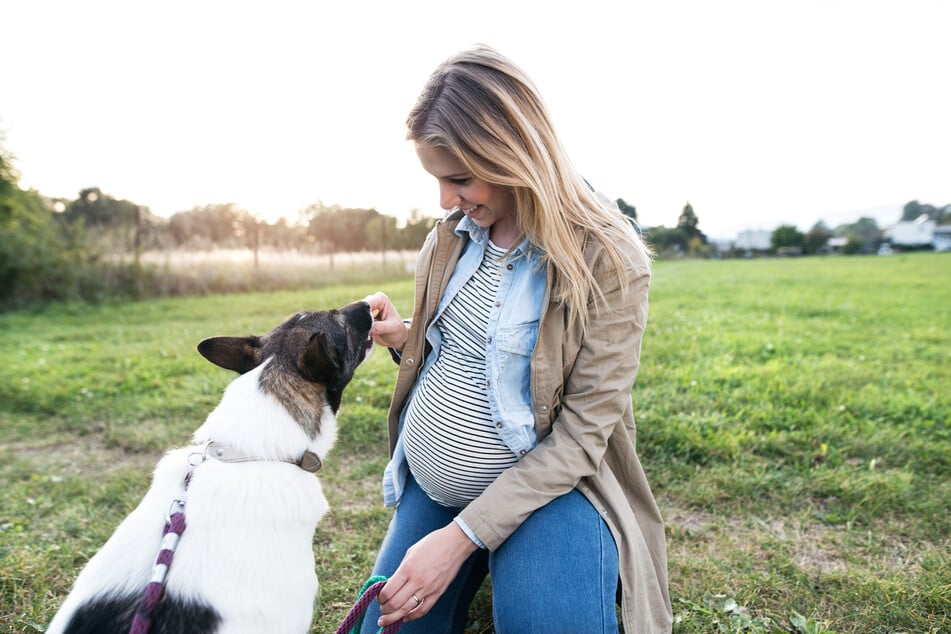
Raw meat can contain a variety of nasty, harmful bacteria. These include the likes of Salmonella, Listeria, E. coli, tapeworms, and a variety of nasty parasites. It's not recommended for any domesticated animal – or person, for that matter – to eat purely raw meat. Dogs should be fed proper dog food, instead.
One of the biggest health risks associated with feeding dogs raw meat is actually not for the dog, but for human owners. Children, elderly people, and pregnant women are susceptible to dog-to-human transmission of bacteria, viruses, and parasites. In particular, toxoplasma can be transmitted into a woman and cause miscarriages or other complications in pregnancy.
Can you eat raw dog meat?
Let's put aside the fact that this is one heck of a weird question and get to the bottom of things: No, you shouldn't eat raw dog meat. That goes both for raw dog food and literal raw dog meat. Both could potentially contain a variety of nasty parasites and diseases that will seriously hamper your health.
In the end, it's all rather simple: Dogs are not wolves, but they can still eat a little bit of raw meat every now and again. Don't go overboard, and just feed them proper dog food. Stay safe and your dog will stay healthy!
Cover photo: 123RF / Chalabala & 123RF / Angelikaheine (TAG24 Edit)

